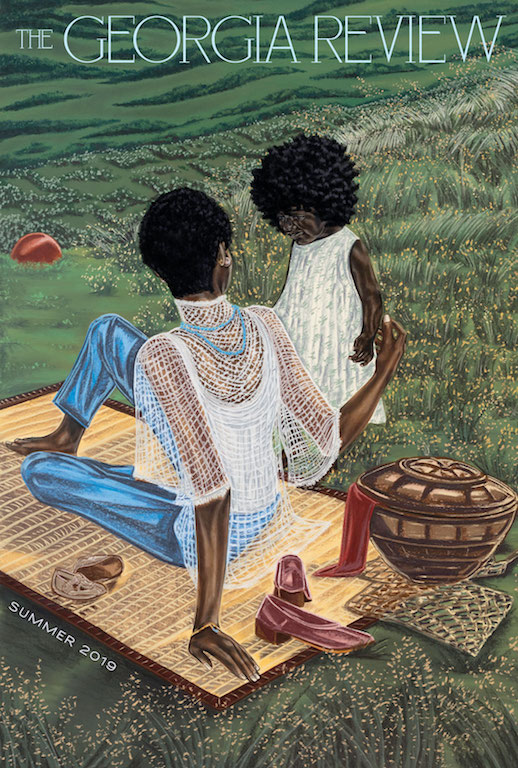The news isn’t all bad. July and Augustwere the hottest months in human history,but a family found the pet tortoisethat went missing in 1982. The low cloudabove me passes under the high cloudslike a souped-up Civic passing on the right.I’ve been all over this island and stillhave no names for most of the trees.Despite the urgings of good peopleI do not find Job comforting: all thatswag and bluster, mean and uselessas Oz before Toto pulls the curtain.The plenitude and manifold textureof things, this comforts me a little.My old friend is in a hospice bed,his beard gray and wispy.His blond granddaughters, both bornmonths early, are up too soon,happily demanding love and cereal.The low cloud is nearly past,the high clouds are scattered and litby the early sun. Not everyone is safe.Not everyone is warm. “God is not big;He is right,” that wise fool William Staffordhad the dandelions say, but they werealready drying up, forgettingeverything, loosing their frothy seedsto scatter and settle as they might.
God Is Not Right, He Is Big
Feature Date
- November 5, 2019
Series
Selected By
Share This Poem
Print This Poem
Copyright © 2019 by Jeff Gundy
All rights reserved.
Reproduced by Poetry Daily with permission.

Jeff Gundy’s eighth book of poems, Without a Plea, was published in early 2019 by Bottom Dog Press. Recent poems and essays are in Cincinnati Review, River Teeth, Forklift, Ohio, Terrain, and Christian Century. He is at work on a series of lyric essays about the Illinois prairie with the working title “Wind Farm.”

Summer 2019
Atlanta, Georgia
University of Georgia
Editor
Gerald Maa
Managing Editor
C. J. Bartunek
Founded at the University of Georgia in 1947 and published there ever since, The Georgia Review has become one of America’s most highly regarded journals of arts and letters. Each quarterly issue offers a diverse, thoughtfully orchestrated gathering of short stories, general-interest essays, poems, reviews, and visual art.
Never stuffy and never shallow, The Georgia Review seeks a broad audience of intellectually open and curious readers—and strives to give those readers rich content that invites and sustains repeated attention and consideration. The physical journal is made to last, expertly printed on fine paper and perfect bound for durability and ease of shelving in one’s library, and the content is made to last as well: over the years, many subscribers have told us that The Georgia Review’s offerings prompt them not only to read every issue cover to cover but also to return to those issues and to share them with friends and colleagues.
Pulitzer Prize winners and never-before-published writers are equals during our manuscript evaluation process, whose goal is to identify and print stories, poems, and essays that promise to be, in the famous words of Ezra Pound, “news that stays news.”
“The Georgia Review is the only magazine I read from cover to cover. In other publications I usually find several things I really like; in The Georgia Review I love nearly everything.”
—Fleda Brown
Poetry Daily Depends on You
With your support, we make reading the best contemporary poetry a treasured daily experience. Consider a contribution today.



